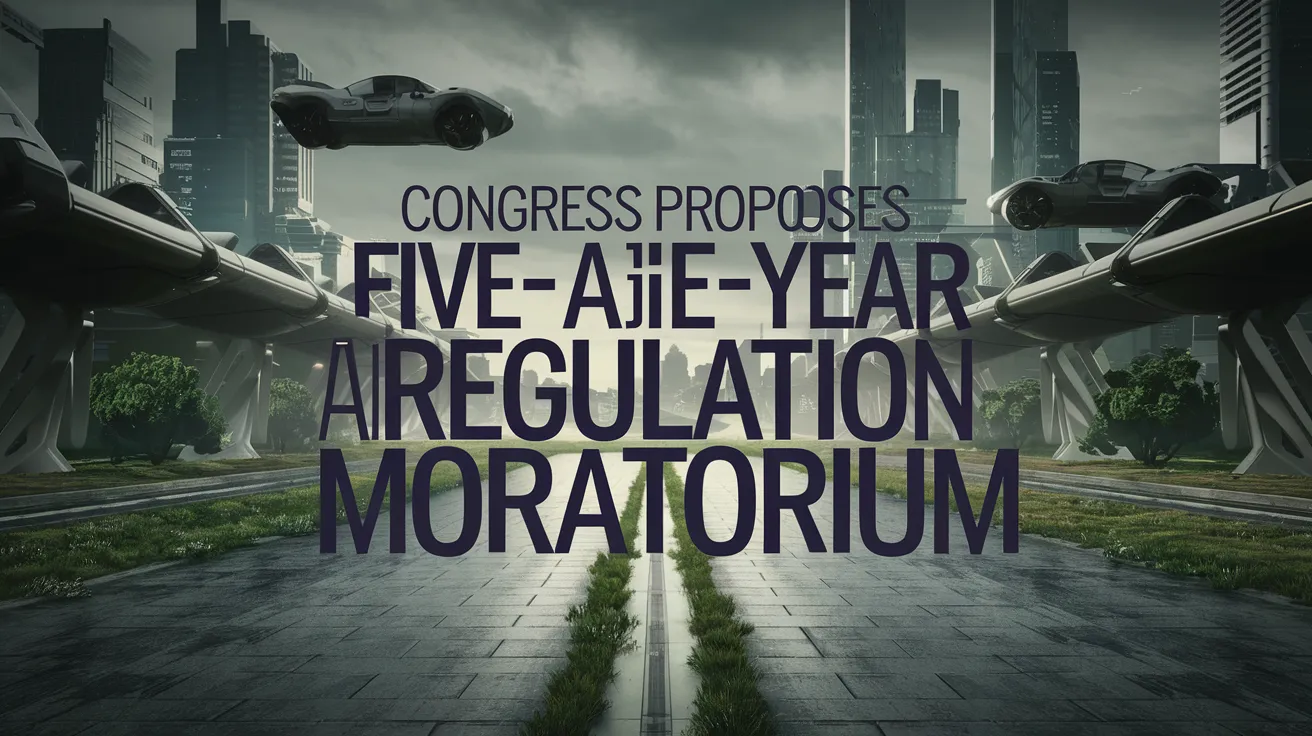Congress Proposes Five-Year AI Regulation Moratorium

A federal proposal set to potentially become law might impose a five-year ban on states and local governments from regulating artificial intelligence (AI), as lawmakers, including Senator Ted Cruz (R-TX), seek to embed it into a major GOP budget bill. This proposal comes at a critical time, with a Senate vote scheduled ahead of the July 4 deadline.
Proponents, including notable figures such as OpenAI’s Sam Altman and tech investors like Marc Andreessen, argue that a uniform federal approach to AI regulation is essential to prevent a confusing array of state laws that could hinder innovation, especially as the U.S. competes with China. However, there is significant opposition from various demographics, including many Democrats, labor groups, AI safety advocates, and even some Republicans, who caution that such a moratorium could prevent essential consumer protections from being enacted against AI harms.
The proposed moratorium would limit states from enforcing laws related to AI systems and automated decision-making for five years. This revised provision, while initially slated for a decade, reflects input from Senator Marsha Blackburn (R-TN) and others, and seeks to exempt legislation focused on child safety, rights regarding an individual’s likeness, and protects against extreme burdens on AI systems. Yet, the impact on state-level AI laws, like California’s AB 2013 which demands transparency in AI training data, remains unclear.
Moreover, the moratorium could extend to several significant AI safety laws currently pending, such as New York’s RAISE Act, which mandates safety reporting for large AI firms. The imposition of this moratorium would also complicate existing laws aimed at curbing deceptive AI practices that might influence elections.
The legislative approach has not been without controversy, as legislators grapple with the implications of tying federal funding allocations to compliance with the moratorium, with some claiming it forces a choice between advancing broadband infrastructure and implementing protective consumer laws pertaining to AI.
The Senate’s current schedule includes extensive voting on this proposed budget bill, with potential amendments being debated. Tech industry figures like Chris Lehane of OpenAI voice concerns that the existing “patchwork” of state regulations on AI is inadequate and could hinder the U.S.’s technological leadership internationally.
Contrastingly, critics of the moratorium highlight that many existing state laws are designed to protect consumers from various AI-related harms, thus illustrating the need for more comprehensive safety guidelines rather than blanket preemptions. They argue that navigating state regulations has not proven insurmountable for the tech industry.
Furthermore, the public sentiment appears to favor more rigorous oversight of AI technologies. According to a Pew Research survey, around 60% of American adults express a preference for stronger regulatory measures rather than concerns regarding overreach by the government.
The outcome of this legislative effort will likely shape the future landscape of AI governance in the U.S., balancing the need for innovation against the imperative of ensuring public safety and accountability in the rapid advancement of AI technologies.